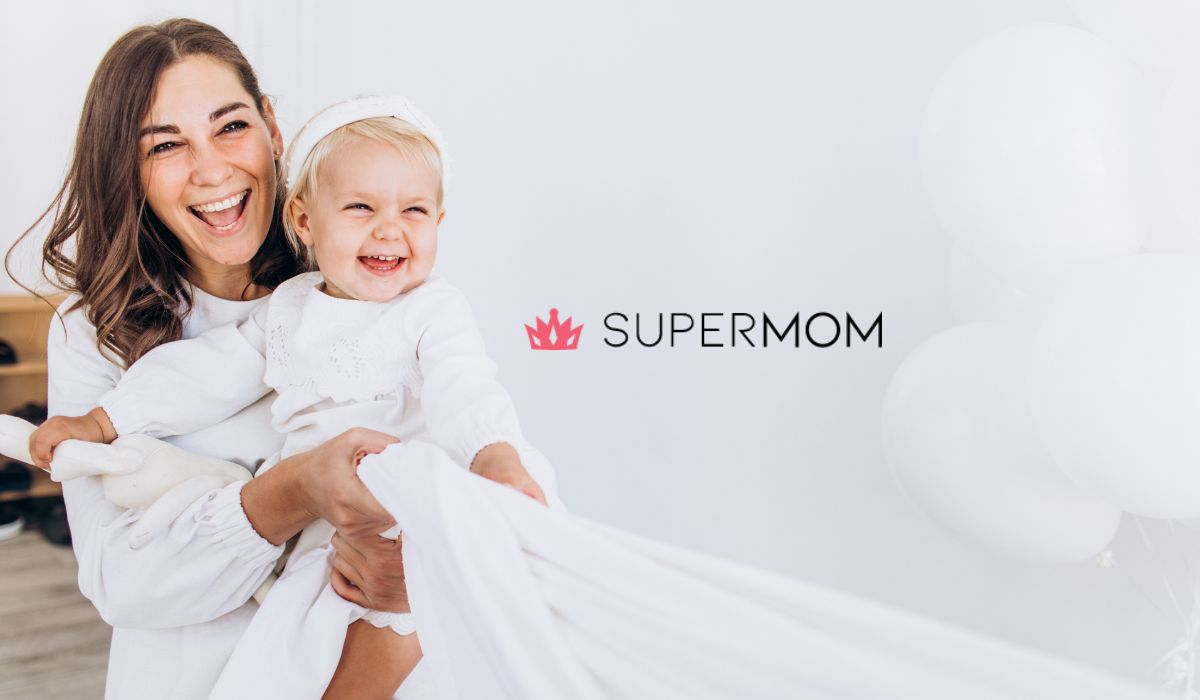Wondering what CBD tincture is and how you can differentiate it from CBD oil?
Does your curiosity stem from different products on the market saying these are tinctures or oils, but in reality, they are the other way around?
No need to worry because this guide has everything you need to know.
In this article, we will define and understand what CBD tincture is and its main differences from CBD oil.
What Are CBD Tinctures?
CBD tinctures, in liquid form, are composed of cannabidiols which, by alcohol and water extraction methods, are from the Cannabis Sativa plant compounds or commonly recognized as hemp plants.
Hemp-derived CBD products are non-intoxicating compounds that do not instigate ecstasy or euphoria and are known to ease stress and target irritability and inflammation.
This herbal extract is believed to take immediate effect, with faster human body absorption, when you put the advised dose under the tongue.
Also, contrary to popular beliefs within the CBD industry, applying CBD tinctures by rubbing them on the skin may not yield any benefits compared to using them sublingually.
Moreover, as its name suggests, CBD tinctures have undergone saturation using a 60% to 70% alcohol base solvent. This, along with water, is how this process can extract compounds from the hemp plant.
Nevertheless, there are three ways to produce CBD tinctures from the cannabis plant. These are full-spectrum CBD, broad-spectrum CBD, and CBD isolates:
- The full spectrum contains almost all cannabis plant compounds, including terpenes, flavonoids, and cannabinoids.
- On the other hand, the broad spectrum has all the other plant compounds except the tetrahydrocannabinol or THC
- While the isolate is mainly enclosed with cannabidiol.
However, CBD products, including CBD tinctures, are NOT approved by the Food and Drug Administration (FDA) except for Epidiolex, an oral solution acknowledged by the Food and Drug Administration in 2018 to help with seizures.
Yet, the FDA confirms that further scientific research and third-party testing for quality are needed to fortify the claims.
CBD Tincture Ingredients
In identifying CBD tincture vs. CBD oil, it is essential to note that in CBD tinctures, there are different additional ingredients to the CBD extract and alcohol, like natural flavors.
These contribute to taste and smell, concealing the bitterness in CBD tincture and also adding to the benefits.
Below are some of the ingredients:
- Food grade distilled alcohol solution or Ethyl alcohol
- CBD, Water, Gamma-aminobutyric acid
- Herbs, Melatonin, Peppermint extract
- Vitamin B12, Vitamin C, Vitamin D
- Sweeteners, Vegetable glycerin
- Other essential oils
Pros
- With food-grade alcohol solution for higher bioavailability
- Longer shelf life (3 to 5 years) because it is alcohol base
- Faster showing of effects when proper dosage is administered under the tongue
Cons
- It has a bitter taste and a strong smell
- Without benefits when topically applied
What Are CBD Oils?
Comparisons between CBD oil vs. CBD tinctures are often made as they are regularly interchanged and are both extracted from the Cannabis Sativa plant or hemp plant.
There are even CBD oil tincture or CBD tincture oil products labeled on the market. However, scientifically, they differ in process and ingredients.
CBD oil comes from CBD hemp extract or plant material processed in a carrier oil like hemp seed oil, coconut oil, olive oil, and medium-chain triglyceride oil.
Moreover, it can also be used topically and may give you benefits and effects contrary to the CBD tincture, where a topical application may not have results at all.
Nevertheless, similar to CBD tinctures, CBD oil can also be produced in full and broad spectrums and CBD isolates.
For the full spectrum, it has 0.3 percent of THC, while the broad spectrum is THC-free. The isolate, per usual, only has cannabidiol and nothing else.
Most importantly, just like any CBD product, CBD oils are NOT approved by the Food and Drug Administration.
CBD Oil Ingredients
Opposite to the many ingredients infused in CBD tinctures, CBD oils have limited components with CBD and carrier oil.
Here is what it is mainly made of:
- CBD isolates
- Carrier oil like Hemp seed oil, Coconut oil, Olive oil, and MCT oil
Remember that the carrier oil helps dilute the CBD extract and cannabidiol from the hemp plants.
Pros
- It only has CBD isolate and carrier oil as ingredients
- Topical application and other methods can be utilized
Cons
- Shorter shelf life span (12 to 18 months) compared to tinctures
CBD Oils vs. CBD Tinctures: The Main Differences
To have a clearer perspective of what sets apart CBD oil vs. CBD tinctures, breaking down the main differences is needed.
In this section, we will delve into the distinct characteristics between CBD oils and tinctures in terms of ingredients, usage, application, safety, and benefits:
Ingredients
The ingredient factor is vital as it greatly recognizes CBD oil from CBD tinctures and vice versa.
Even though both contain CBD hemp extract, factors in other components differentiate one from the other. Specifically, CBD oil is oil-based, while CBD tincture is alcohol-based.
Moreover, CBD oil has two main ingredients: CBD isolates and carrier oils such as hemp seed oil, olive oil, coconut oil, or MCT oil.
Unlike CBD oil, CBD tinctures have flavoring agents, other cannabinoids, and added components to hide CBD’s unpleasant taste and smell, along with CBD isolate extracted using alcohol and water.
Usage & Applications
In terms of usage and application, CBD oils and tinctures can be taken sublingually or under the tongue with proper dosage.
This is the best way to consume CBD, specifically by placing 1 to 3 drops (or medically-advised dosage) under the tongue.
However, CBD tinctures CANNOT be applied to the skin through rubbing or any methods as they will not give any benefits. It is also not designed to be inhaled.
Conversely, CBD oils CAN be applied topically and even using other methods with assured effects.
Nevertheless, CBD tinctures have a faster time to show their possible effects, unlike CBD oils if you use the latter on the skin.
Moreover, individuals can add CBD oils and tinctures to their daily food servings, as both can be taken orally.
Once CBD products have successfully entered the body through different cannabinoid delivery systems (e.g., oil, tincture), they will react with the endocannabinoid system.
In this phase, there will be bindings with receptors and, soon enough, be broken down by fatty acids.
This system is not as well-researched as the central nervous system. Still, investigations show that it regulates food intake dynamics and glucose metabolism, among others which can also potentially affect the following:
- Thinking
- Fertility
- Digestive system
- Sleeping patterns
Safety
With the proper dosage from medical and wellness professionals, CBD oils and tinctures are safe to consume.
However, there are still gaps in research on its effects on hormones and other areas of concern.
As much as research describes CBD as safe to consume, some studies show that both can cause physical side effects.
Benefits
Individuals take CBD oils and tinctures for perceived health benefits. But what are these?
Since most CBD products, including CBD oils and tinctures, are not FDA-approved, here are their possible benefits:
- Eases stress and irritability
- Supports discomfort relief
Nonetheless, since CBD oils (and CBD cream) can be applied topically, according to studies by Olah et al. and Bíró et al., they might also have skin benefits:
- With anti-inflammatory properties
- Help with dry skin
- Supports regulated sebum production (controlled oils)
Side Effects
A report says that in their clinical studies, these were the recorded side effects of CBD:
- Tiredness
- Diarrhea
- Change of appetite
- Change in weight
Also, experts say it might also cause dry mouth, drowsiness, and fatigue. In addition, CBD might be able to affect metabolite exposures when the intake is paired with one of these; high-fat calorie meals, low-fat calorie meals, or whole milk.
Moreover, there can be potentially severe adverse effects if you take CBD oils and tinctures with other medications for health conditions.
This is why always bear in mind to consult a healthcare professional before taking CBD products.
Legality
CBD oils and tinctures are both ILLEGAL. This means that the FDA disapproves of the CBD over-the-counter products you buy, except for Epidiolex.
However, hemp has been disassociated from the Controlled Substances Act, which legally defines a marijuana plant.
So, does that make CBD legal? It is still a no, but some states consider CBD acceptable if it has 0.3% or lesser THC.
Shelf Life
The shelf life is also one of the things that create gaps when identifying what CBD oil is from CBD tinctures.
It is known that CBD oil has a shorter shelf life than CBD tinctures. Here are their numbers:
- CBD oils – 1 year to 1.5 years
- CBD tincture – 3 to 5 years
Of course, these numbers are given based on proper preservation and storage. Remember that CBD oils and tinctures should never be put near a heat source or directly under the sun’s rays.
Taste, Flavor, & Consistency
With the varying ingredients, it is also guaranteed that there are differences in taste, flavor, and consistency.
CBD oils have stronger hints of CBD and hemp for taste and flavor because they do not have flavoring ingredients, unlike CBD tinctures.
Although the latter may still be very bitter, it may be overpowered by additional flavoring ingredients.
In terms of consistency, CBD oils can be thick and greasy because they are oil-based. With this, CBD tinctures have a lighter texture and are less oily.
Which Is Better, CBD Oils or CBD Tinctures?
CBD oils and tinctures are the same in terms of possible effects; they just differ in their bases.
For those who want the topical application of CBD and are allergic to alcohol, CBD oils are for you. Yet, CBD oils can be expensive. Nevertheless, you can easily spot it on the market as it is readily available.
For those who prefer a thin formulation and higher bioavailability, and a much longer shelf life span of 3 to 5 years, CBD tinctures are the better option.
Unlike CBD oils, tinctures are much more affordable. The downside is that it can be challenging to search for as it is not as obtainable as the oils.
Tips on Finding the Best CBD Oils and Tinctures
In finding the best CBD oils and CBD tinctures, it is better to prioritize the research of the product’s components, check if they have undergone third-party testing, and hear what previous customers have to say.
These factors are essential to delve into as FDA has not approved nonprescription CBD products:
1.) Research the Product’s Components
In checking CBD oil vs. CBD tincture’s components, there are three things you need to look out for:
- Hemp plants’ quality – First, check where the hemp extract is from. Commonly, it is stated by manufacturers in their product descriptions. Also, know what the extraction method is. In this case, the carbon dioxide extraction method is a better choice.
- The manufacturer – Second, know who the manufacturer is. The manufacturer must have a recent certificate of analysis listing the potency, CBD profile, and what the product has been tested on.
- The ingredients match what it claims (full, broad, isolate) – Third, the proportion of ingredients should reflect what is inside the product. It will clarify if the CBD oil or tincture is underdosed, overdosed, or may have included components you are allergic to.
2.) Check Third-Party Testing
Ensure that the CBD oil or tincture you are about to consume has been tested by a third-party testing company or researchers for contaminants, heavy metals, and other vital details.
Also, ensure that this third party is NOT in any way affiliated with the CBD companies manufacturing the product.
By doing so, you can assure the safety and purity of the CBD oil or CBD tincture you want to use from any harmful contaminants.
3.) Know the Customers’ Review
Knowing customers’ firsthand experiences from the CBD oil and CBD tincture’s official website or social media accounts will be helpful in your decision-making.
Even word-of-mouth from acquaintances or family members can be an essential deciding factor.
These will give you a broader perspective on how CBD oil vs. CBD tincture works on an individual, how it performs overall, and what its limitations are.
Frequently Asked Questions (FAQs)
For you to know more about CBD oils and CBD tinctures, we have answered some of your frequently asked questions in this section:
How Long Is CBD Tincture Effective?
CBD tincture’s effects on the body can last from a minimum of 2 hours to a maximum of 6 hours.
However, this differs on each individual’s physical attributes, health status, and how much CBD you intake.
How Long Does It Take to Feel a CBD Tincture?
In using tincture sublingually or placing a few drops under your tongue, you may feel the effects after approximately 15 minutes.
However, oral intake of CBD tincture may take a longer time to take effect. It will be between an hour or two after the dose.
Do CBD Tinctures Make You Sleepy?
It is possible. One of the listed side effects of CBD intake is drowsiness. This means there may be some individuals who will feel sleepy after taking CBD tinctures. However, this is not guaranteed.
Does CBD Make You Lose Weight?
Another observed side effect of CBD is a change in appetite, so it is possible to lose weight, but it is not guaranteed and is not a direct effect.
This can vary among individuals, and you may experience an increase or decrease in weight depending on your diet and eating habits.
Conclusion
Between CBD tincture vs. CBD oil, they are essentially the same. Yet, they differ in how they are processed and what ingredients accompany them.
CBD tincture is alcohol-based with natural flavorings and a bitter taste, while CBD oil is oil-based with nothing but CBD isolates and carrier oils.
A CBD tincture is also more affordable than CBD oil. Yet, it can be rarely seen on the market.
Moreover, a CBD tincture is only effective when taken orally or sublingually. CBD oil, on the other hand, can be applied on the skin or topically.Nevertheless, in purchasing CBD oils and tinctures, always be wary of the components, manufacturers, third-party testing, and customer reviews to ensure you get what you pay for with a safe, pure, and quality CBD product.
![What Is a Tincture of CBD? [Main Differences With CBD Oil]](https://trysupermom.com/wp-content/uploads/2022/10/CBD-Tincture-1024x597.jpg)


